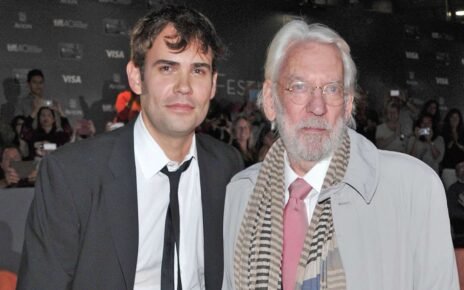By George King, Andrew Woodger, BBC News, Suffolk
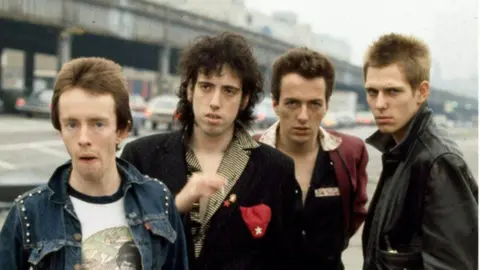 Getty Images
Getty ImagesA town’s local history society has said a punk gig which “caused mayhem” and resulted in certain types of live music being banned in public buildings for two decades is “not worthy” of a blue plaque.
The Bury Society has unanimously agreed against putting its support behind calls for a blue plaque to commemorate The Clash’s 1978 concert at The Corn Exchange in Bury St Edmunds, Suffolk.
The show, which also featured an earlier incarnation of 2 Tone leaders The Specials, is cited by Paul Johnson as the sole reason similar gigs did not take place for 20 years.
Punk rock fan Mr Johnson, 55, is spearheading the campaign for the infamous/legendary gig to be honoured and has said he “won’t take no for an answer”.
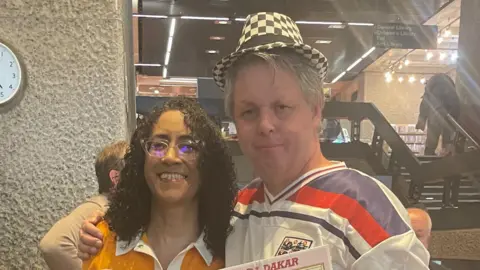 Paul Johnson
Paul Johnson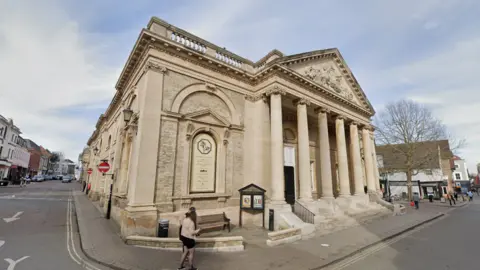 Google Maps
Google MapsSpeaking about the Bury Society’s decision, Mr Johnson said: “It’s actually an even better response that they have said ‘no’ – I think anyone involved in punk would absolutely love that.
“Nearly 50 years on and there are still people who hold a grudge against punk rock music… but modern history has value too.
“There is a big void in Bury’s history because established bands were not allowed here – we could have had good times but we were denied it.
“The council acted like they do in Footloose – they banned rock and roll.”
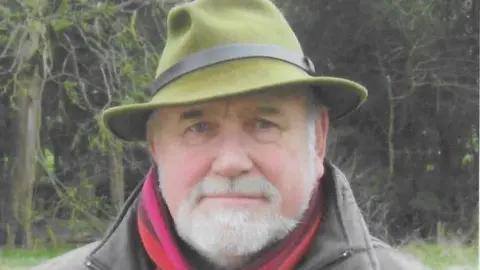 Martyn Taylor
Martyn TaylorMartyn Taylor, chairman of the Bury Society, said the organisation could not champion an event which had promoted “unruly behaviour”.
“That was obviously something the council was not happy with so the Bury Society considers that putting a blue plaque up would be inappropriate,” he said.
“The whole aspect of putting a blue plaque up is to record something noteworthy and I wouldn’t say an event which caused mayhem is worthy of recording.”
Despite the society’s decision, Mr Johnson says he will not be deterred and will continue to fight for the show to be celebrated in an official capacity.
“We are dogged, we are Generation X, and we won’t take no for answer,” he said.
The promoter of 1978 gig, John Hessenthaler, recalled the concert in a BBC feature from 2010.
He claimed: “There were rumours that there was going to be trouble, but that didn’t happen.”
Times have changed for fans of the more raucous end of popular music – the council opened the Apex venue in the town in 2010 staging a wide variety of live music, and the independent Hunter Club also serves music lovers.
And there’s always the cathedral and its organ, choir and concerts.





